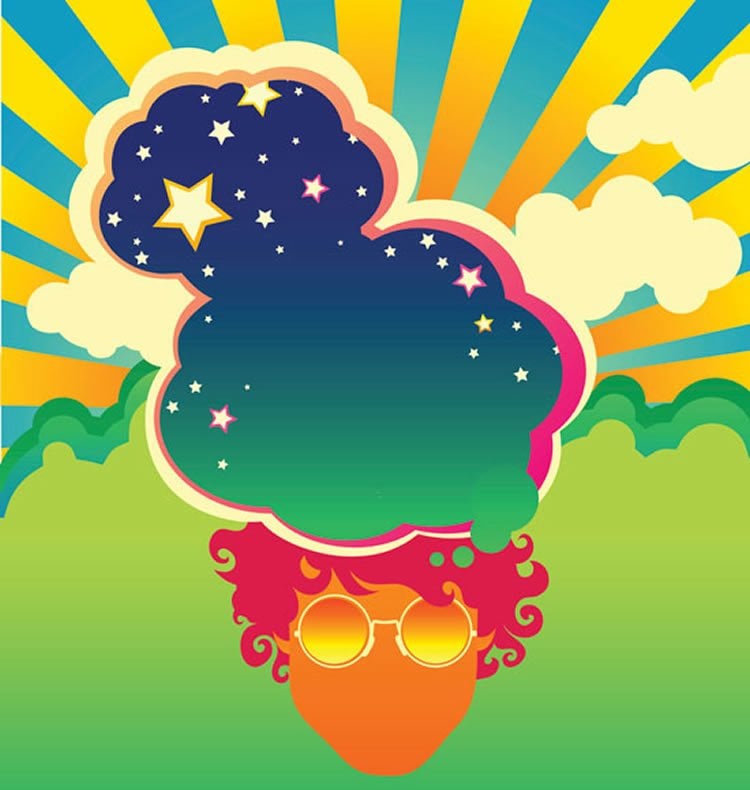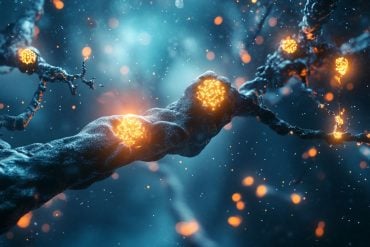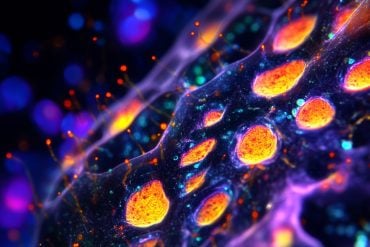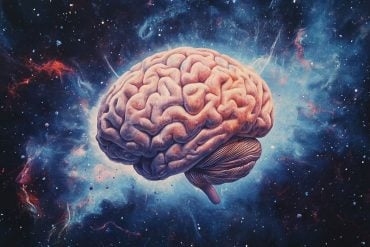Summary: A new study reports people who have used a classic psychedelic are significantly less likely to commit a crime or indulge in criminal behavior. However, use of other controlled substances is linked to an increased risk of criminal behavior, researchers report.
Source: University of Alabama at Birmingham.
Classic psychedelics such as psilocybin (often called magic mushrooms), LSD and mescaline (found in peyote) are associated with a decreased likelihood of antisocial criminal behavior, according to new research from investigators at the University of Alabama at Birmingham.
The findings, published online Sept. 24 by the Journal of Psychopharmacology, suggest that treatments making use of classic psychedelics like psilocybin could well hold promise in reducing criminal behavior.
“These findings, coupled with both older and emerging bodies of evidence, make a case that classic psychedelics may provide enduring benefits for criminal justice populations,” said Peter Hendricks, Ph.D., associate professor in the Department of Health Behavior, in the UAB School of Public Health. “They certainly suggest that clinical research with classic psychedelics in forensic settings should be considered.”
The current study used data obtained by the National Survey on Drug Use and Health, which is administered by the U. S. Department of Health and Human Services. Hendricks says the study demonstrates that having ever used a classic psychedelic and, to some degree, having ever used psilocybin specifically, are associated with a decreased likelihood of larceny/theft and other property crimes, as well as a decreased likelihood of assault and other violent crimes.
Hendricks’ team looked at the relationships between classic psychedelic use and criminal behavior among over 480,000 U.S. adult respondents from the past 13 years of the annual survey. Survey respondents were asked about past use of a number of classic psychedelics including ayahuasca (a traditional spiritual medicine among the indigenous peoples of the Amazon basin), dimethyltryptamine, LSD, mescaline, peyote or San Pedro (mescaline-containing cacti used for centuries in traditional indigenous rituals), and psilocybin mushrooms.
Having ever used a classic psychedelic was associated with a 27 percent decrease in the odds of committing larceny/theft, a 12 percent decrease in the odds of committing assault, a 22 percent decrease in the odds of arrest for a property crime, and an 18 percent decrease in the odds of arrest for a violent crime in the past year. Illicit use of other substances, in contrast, was largely associated with an increased likelihood of criminal behavior at or above the trend level.
“These findings are consistent with a growing body of research suggesting classic psychedelics confer enduring psychological and prosocial benefits,” Hendricks said. “Classic psychedelics can produce primary mystical experiences — also known as primary religious experiences or peak experiences — and have been used for millennia across cultures with therapeutic intention.”

Hendricks says these findings contribute to a compelling rationale for the initiation of clinical research with classic psychedelics, including psilocybin, in forensic settings.
“The development of innovative and effective interventions to prevent criminal behavior is an obvious priority,” he said. “Our findings suggest the protective effects of classic psychedelic use are attributable to genuine reductions in antisocial behavior rather than reflecting improved evasion of arrest. Simply put, the positive effects associated with classic psychedelic use appear to be reliable. Given the costs of criminal behavior, the potential represented by this treatment paradigm is significant.”
Source: Bob Shepard – University of Alabama at Birmingham.
Publisher: NeuroscienceNews.com.
Image Source: NeuroscienceNews.com images is adapted from the University of Alabama at Birmingham news release.
Original Research: Abstract for “The relationships of classic psychedelic use with criminal behavior in the United States adult population” by Peter S Hendricks, Michael Scott Crawford, Karen L Cropsey, Heith Copes, N Wiles Sweat, Zach Walsh, and Gregory Pavela in Journal of Psychopharmacology. Published online October 17 2017 doi:10.1177/0269881117735685
[cbtabs][cbtab title=”MLA”]University of Alabama at Birmingham. “Psychedelic Drugs Could Reduce Criminal Behavior.” NeuroscienceNews. NeuroscienceNews, 18 October 2017.
<https://neurosciencenews.com/psychedelics-criminality-7763/>.[/cbtab][cbtab title=”APA”]University of Alabama at Birmingham. (2017, October 18). Psychedelic Drugs Could Reduce Criminal Behavior. NeuroscienceNews. Retrieved October 18, 2017 from https://neurosciencenews.com/psychedelics-criminality-7763/[/cbtab][cbtab title=”Chicago”]University of Alabama at Birmingham. “Psychedelic Drugs Could Reduce Criminal Behavior.” https://neurosciencenews.com/psychedelics-criminality-7763/ (accessed October 18, 2017).[/cbtab][/cbtabs]
Abstract
The relationships of classic psychedelic use with criminal behavior in the United States adult population
Criminal behavior exacts a large toll on society and is resistant to intervention. Some evidence suggests classic psychedelics may inhibit criminal behavior, but the extent of these effects has not been comprehensively explored. In this study, we tested the relationships of classic psychedelic use and psilocybin use per se with criminal behavior among over 480,000 United States adult respondents pooled from the last 13 available years of the National Survey on Drug Use and Health (2002 through 2014) while controlling for numerous covariates. Lifetime classic psychedelic use was associated with a reduced odds of past year larceny/theft (aOR = 0.73 (0.65–0.83)), past year assault (aOR = 0.88 (0.80–0.97)), past year arrest for a property crime (aOR = 0.78 (0.65–0.95)), and past year arrest for a violent crime (aOR = 0.82 (0.70–0.97)). In contrast, lifetime illicit use of other drugs was, by and large, associated with an increased odds of these outcomes. Lifetime classic psychedelic use, like lifetime illicit use of almost all other substances, was associated with an increased odds of past year drug distribution. Results were consistent with a protective effect of psilocybin for antisocial criminal behavior. These findings contribute to a compelling rationale for the initiation of clinical research with classic psychedelics, including psilocybin, in forensic settings.
“The relationships of classic psychedelic use with criminal behavior in the United States adult population” by Peter S Hendricks, Michael Scott Crawford, Karen L Cropsey, Heith Copes, N Wiles Sweat, Zach Walsh, and Gregory Pavela in Journal of Psychopharmacology. Published online October 17 2017 doi:10.1177/0269881117735685






